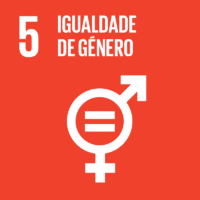Ciência_Iscte
Publicações
Descrição Detalhada da Publicação
Property ownership by widows: A study of 19-century inheritance practices on the island of São Jorge (Azores archipelago), Portugal
Título Livro
Women and family property
Ano (publicação definitiva)
2024
Língua
Inglês
País
Estados Unidos da América
Mais Informação
Web of Science®
Esta publicação não está indexada na Web of Science®
Scopus
Google Scholar
Esta publicação não está indexada no Overton
Abstract/Resumo
Compared to the situation in several European countries, 19th-century inheritance laws in Portugal were relatively favourable to widows. Whereas in England and some Nordic countries widows were legally entitled to inherit one-third of their deceased spouse’s estate, female spouses in Portugal were deemed to own half of the assets of the couple (this share being known as the meação), which they then inherited. The remaining assets of the deceased husband’s estate were subject to mandatory distribution to the children of the family. However, in some communities there was a strong tendency to concentrate inheritance rights on one member of the family (often one of the offspring of the couple) with the favoured beneficiary being required to remain in the family home, to care and assist the surviving spouse and to observe religious rites for the salvation of the deceased’s soul. The authors investigate whether this was also the case in São Jorge, as they observed in this place some very severe geographical and demographic conditions. The high rates of emigration and celibacy were important factors that probably influenced inheritance practices. The authors use probate inventories in order to discover some different Portuguese realities among rural communities.
Agradecimentos/Acknowledgements
--
Palavras-chave
Classificação Fields of Science and Technology
- História e Arqueologia - Humanidades
Contribuições para os Objetivos do Desenvolvimento Sustentável das Nações Unidas
Com o objetivo de aumentar a investigação direcionada para o cumprimento dos Objetivos do Desenvolvimento Sustentável para 2030 das Nações Unidas, é disponibilizada no Ciência_Iscte a possibilidade de associação, quando aplicável, dos artigos científicos aos Objetivos do Desenvolvimento Sustentável. Estes são os Objetivos do Desenvolvimento Sustentável identificados pelo(s) autor(es) para esta publicação. Para uma informação detalhada dos Objetivos do Desenvolvimento Sustentável, clique aqui.

 English
English



